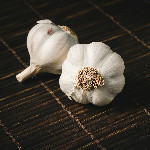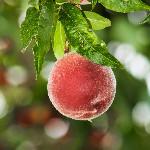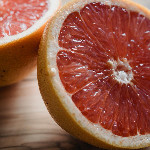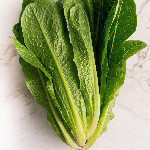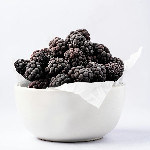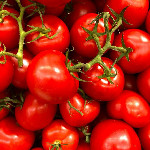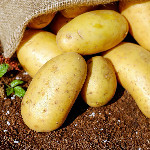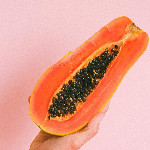Origins and Varieties:
The story of melons unfolds against the backdrop of ancient civilizations, where they were revered as symbols of fertility, abundance, and prosperity. Native to the arid regions of Africa and Asia, melons belong to the Cucurbitaceae family and encompass a wide array of species and cultivars.
Among the most popular melon varieties are the sweet, succulent watermelon (Citrullus lanatus), celebrated for its vibrant red flesh and high water content; the aromatic, honeydew melon (Cucumis melo var. inodorus), prized for its pale green flesh and delicate sweetness; and the crisp, refreshing cantaloupe (Cucumis melo var. cantalupensis), known for its orange flesh and musky aroma.
Nutritional Composition:
In addition to their delightful taste, melons boast an impressive nutritional profile, making them a guilt-free indulgence for health-conscious individuals. A one-cup serving of diced melon (approximately 156 grams) contains about 46 calories, primarily derived from carbohydrates in the form of natural sugars, including glucose, fructose, and sucrose.
Melons are also rich in water, with watermelon containing about 92% water by weight, honeydew melon containing about 90% water, and cantaloupe containing about 89% water. This high water content makes melons an excellent choice for hydration, particularly during hot summer months.
Moreover, melons are a abundant source of essential vitamins and minerals, including vitamin C, vitamin A, potassium, and folate. Vitamin C, a potent antioxidant found abundantly in melons, plays a crucial role in boosting immune function, promoting collagen synthesis, and enhancing iron absorption.
Vitamin A, another vital nutrient present in melons, contributes to eye health, immune function, and skin integrity. Potassium, a mineral electrolyte found in melons, plays a vital role in regulating blood pressure, supporting heart health, and maintaining fluid balance within the body.
Additionally, melons contain small amounts of other vitamins and minerals, such as vitamin B6, vitamin K, magnesium, phosphorus, and calcium, further enriching their nutritional value.
Health Benefits:
The consumption of melons has been associated with a myriad of health benefits, making them a valuable addition to a balanced diet. Research suggests that regular melon consumption may reduce the risk of chronic diseases, including heart disease, stroke, type 2 diabetes, and certain cancers.
The antioxidants found in melons, such as vitamin C, vitamin A, and beta-carotene, exhibit anti-inflammatory and anti-cancer properties, scavenging free radicals and protecting cells from oxidative damage. These compounds have been linked to improved cardiovascular health, reduced inflammation, enhanced cognitive function, and longevity.
Moreover, the high water content of melons contributes to hydration, promoting healthy skin, regulating body temperature, and aiding in detoxification. The electrolytes, such as potassium, magnesium, and calcium, found in melons help maintain fluid balance, support nerve function, and prevent muscle cramps.
Culinary Uses:
Beyond their nutritional benefits, melons are prized for their versatility in culinary applications. Whether enjoyed fresh, blended into smoothies, or incorporated into salads, salsas, and desserts, melons add a burst of flavor and color to any dish.
Watermelon, with its crisp, juicy flesh, lends itself well to beverages, such as agua frescas, cocktails, and fruit punches. Honeydew melon, with its subtle sweetness and delicate aroma, pairs beautifully with savory ingredients, such as prosciutto, feta cheese, and mint.
Cantaloupe, with its tender flesh and musky aroma, is perfect for fruit salads, sorbets, and chilled soups. Additionally, melons can be grilled, roasted, or pickled to enhance their flavor and texture, creating innovative dishes that delight the palate and invigorate the senses.
Conclusion:
In conclusion, melons embody the essence of summer, offering a refreshing combination of flavor, nutrition, and hydration. From their ancient origins to their modern-day cultivation, melons have enchanted generations with their juicy sweetness and abundant health benefits. With their diverse varieties, vibrant colors, and myriad culinary possibilities, melons continue to inspire creativity and delight the senses. So, the next time you bite into a ripe, juicy melon, savor not only its delicious taste but also its profound connection to the rich tapestry of human experience and the natural world.



